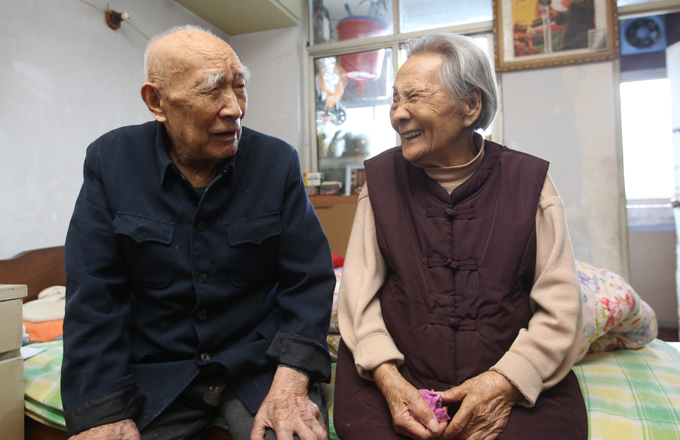Volunteers 'read' movies for the blind
HARBIN — At 0:51, he stopped his bicycle and took off his black leather gloves. At 1:06, a thin man in a black coat, who looks like a thief, took off his helmet. At 2:53, early next morning, Mr Six was walking his birds.
This all describes special footage, of Chinese movie Mr Six, designed for blind people.
The footage was created by volunteers from a university in Harbin, capital of Northeast China's Heilongjiang province.
With the volunteers reading the footage with audio description, visually-impaired people can enjoy the movie at the cinema despite not being able to see the screen.
Liu Yiwei is among the 75 volunteers from Heilongjiang University.
The journalism and communication major says they have to watch at least ten times before writing the footage.
"We describe in words the scenes, moves, facial expressions and other details of movie characters that are not included in actors' lines to give the blind audience the visual information," Liu said.
She says they usually need one month to finish a movie.
The footage of an ordinary movie usually has more than 10,000 words, and for literary and artistic movies such as "Coming Home," a romance directed by Zhang Yimou with few lines, they wrote about 20,000 words.
Starring Gong Li and Chen Daoming, the movie tells the story of an intellectual who tries but fails to reunite with his wife when he is transferring from one labor camp to another in the early 1970s. He returns home three years later to find his wife has amnesia.
To avoid overly disturbing the audience, the volunteers have to pay attention to the length and intervals of their sentences.
"We have to interpret the visual information into words, and at the same time keep the movie characters' lines heard without being disturbed by our words, which is actually difficult," she says.
Before the show, volunteers have to rehearse several times.
"We should be extremely careful for action movies, like the blockbuster Wolf Warriors 2, as the rhythm of our words is critical as fight scenes shift very quickly," she says.
To test the effect, Bi Xinyue, another volunteer, insists on "watching" the movie with her eyes closed.
The movies, arranged once every month, draw about 50 visually-impaired people each time.
"Their laughter and applause make us feel all our efforts are worth it," Bi says. "Everyone deserves a better life."
China has about 13 million visually impaired people, but barrier-free movies for the blind are rare.
According to the barrier-free service center of Heilongjiang provincial library, where the movies are shown, the volunteers have made 13 movies since May 2016, drawing 1,000 blind people in total.
Xia Ximing, barrier-free movie manager with the library, says the library has established long-term cooperation with the volunteers of Heilongjiang University.
"The movies have attracted blind people to step out of home and experience a colorful life through movies," he says.




















